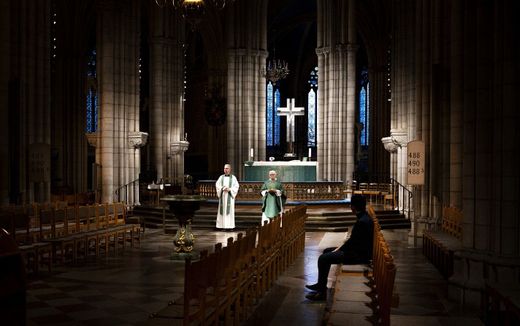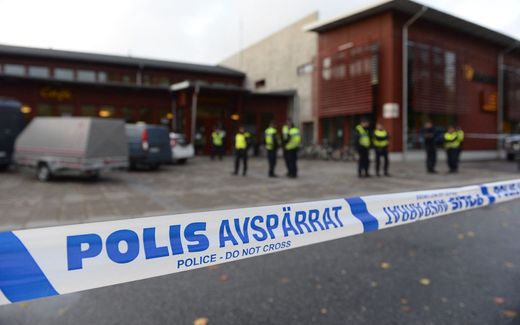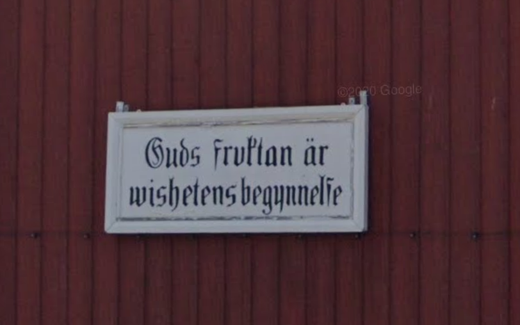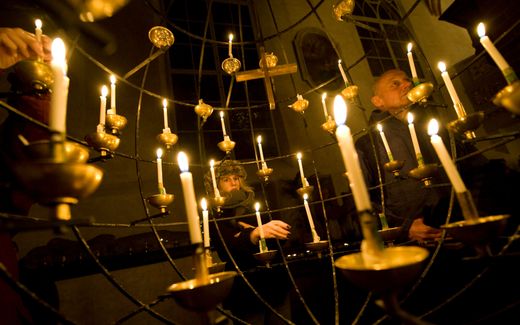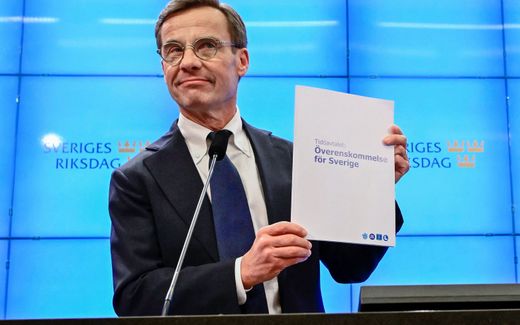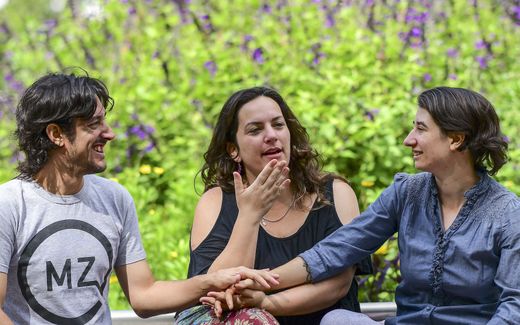Inclusivity has eaten my Christian Sweden
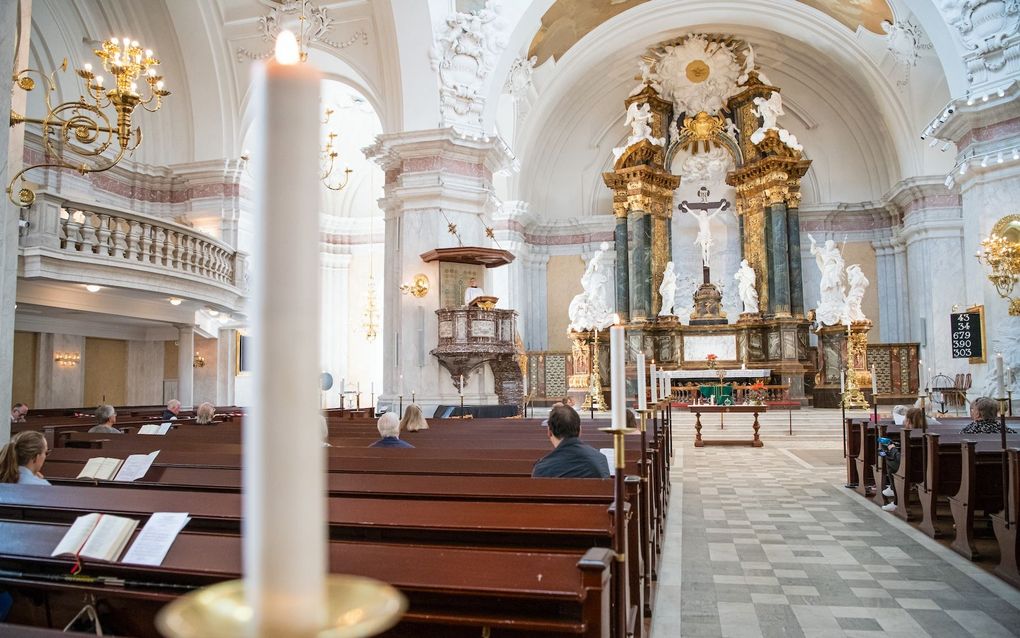
The Church of Sweden still stands as a monument from the Christian past. On Sunday morning, most places are empty, though. Photo AFP, Jonathan Nackstrand
Opinion
Sweden is Julia's home, and she would not want it any other way. However, she has one large concern—and it is not only Sweden she is worried about.
Stay up to date with Christian news in Europe? Sign up for CNE's newsletter.
I love my country; this feeling overwhelms me even as the sky turns an autumnal grey. The same feeling struck me a few months ago while travelling cross-country by bus. Sweden is my home, and I want it to flourish.
Yet, my love is tainted by concern. A concern so deep that it makes me pause and ask if the Sweden I love is a country I barely remember. Like in many European countries, the last decades of ideological interventions have left their mark.
Christian values were once our cultural core. They have eroded at record speed, and no one seems to defend them. We should speak up while we still can.
Sweden
We used to be a Christian nation. But now, Sweden has been called one of the most atheistic countries in Europe.
Parallel to the declining church attendance, new cultural norms have risen. Even conservative parties are heavily influenced by secular and feminist ideas. For example, both political left and right are unified in their support for abortions and Pride ideology.
The left has moved focus from working-class people to identity politics. The marginalised have been redefined into groups such as women, transsexuals and Muslims.
As a Christian, having an open heart for the weak is essential. However, the danger lies in the tendency to victimise arbitrary groups and overlook individual vulnerability. This creates needless battle lines between perceived victims and perpetrators. From this new left, we reap the fruits of the sexual revolution and wokeness. The right has not been immune to identity politics either.
Migration crisis
When not attending Pride parades and running pro-abortion campaigns, other liberal tendencies run amok. For example, back in 2014, at the start of the migration crisis, the right-wing prime minister called for all Swedes to "open our hearts" and trust the suspected wave of migrants.
Once again, the problem lies not in wanting to help those in need but rather in disregarding Swedish values and being reluctant to guard the safety of her citizens. This line of thinking continued into the crisis, and to critique it was seen as reprehensible.
This became a cross-bloc policy. It resulted in great pride in our perceived openness, with some Swedish politicians going so far as to call the country a "humanitarian superpower."
As a result of this policy, the initial foreign religion of Islam has grown immensely in Sweden. Worse still, Islam is the only religion respected by those in power. This is exemplified by the concessions made in the name of cultural inclusivity.
Forget your children singing psalms at graduation. This tradition might be offensive to Muslim kids! If a man refuses to shake hands with a woman, it is seen as a " cultural expression". Islamic symbols are perceived as appropriate, whereas a cross isn't.
Altar
The Sweden of yesterday still had its roots in Christianity. We enjoyed a high-trust society before offering it on the altar of inclusivity. Back then, there was no gang violence or shootings. Reading the paper wasn't a barrage of rapes, robberies or dead children caught in the crossfire. I remember the time when a double homicide in my hometown still shocked me.
Less drastically, I have lost count of how often I have been advised to call a cab instead of waiting for the transfer bus home—"just to be safe." So, where is the Christian voice?
Sweden needs to restore Christian values. A return to church would gladden my heart and benefit society. But the return of our values in public institutions such as schools would go a long way.
We, Christians, need to exercise our democratic rights and dare declare our allegiance to God. There can be no heaven on earth, but society can mend and become better again. Refrain from outwardly supporting Christian values and policies, whether you tend towards the political right or left. I am not calling everyone to become a career politician but to raise our voices.
Vote with caution and speak the truth. Be it big or small. Do you want to be a mother and not work a corporate job? Or do you want your children to sing a psalm at graduation? If you don't say it, no one can hear it. Talk appreciatively of pregnancy; a child is not a punishment or something to be ashamed of.
We cannot change the violent wave surrounding us. Not on our own. But giving into despair and doing nothing is much worse. Each time we stay silent, it will be harder to speak up the next time. The good news is that we aren't alone.
So, speak, be it in your living room, your office or the government. While being Christian is not the norm anymore, we are not oppressed. No one will kill us for speaking up!
Our suppression is a knot of our own making. The secret police will not come knocking on my door for writing this. The boss at work may try to shame or scare me into attending some restorative workshop. So be it.
Is your country similar to mine? Today, we can practice speaking. Take courage in God and your Christian friends. Highlighting a perspective not held by family and friends can be painful or annoying. I, too, have been tempted to remain silent and let things slide.
It is easier at the moment. But when I took the discussion, I left the encounter free from remorse. Even if I didn't change any minds, I knew I did my best. So can you!
If we don't start practising today, it might be too late. "Live not by lies" was an elegant way to phrase this call to action. I can only repeat Solzhenitsyn's words.
Related Articles


